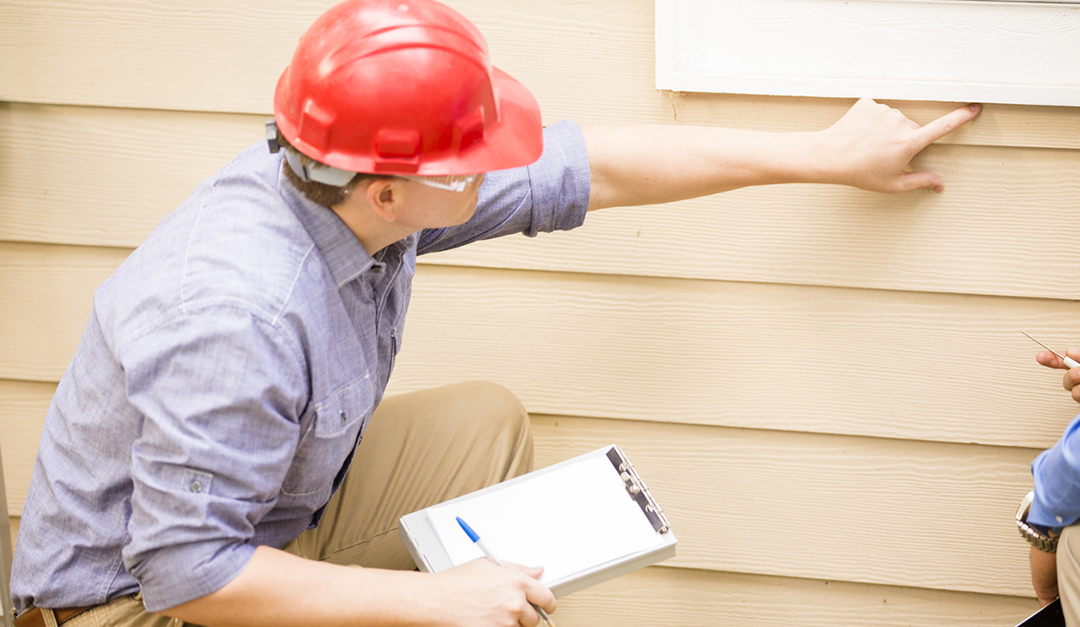A home inspection is an essential step in the buying process. It makes sure that buyers aren’t getting themselves into a contract to purchase a house that will be an expensive mistake. For sellers, it can be a cause for worry, because it could lead to costly home repairs before they can sell the home.
However, there is no such thing as a perfect property. A home inspection will almost always discover some issues that need attention and could lead to further negotiation. That being said, it is likely that many of the defects found by the inspector will be relatively minor—things that could be quickly and inexpensively fixed, and aren’t going to make the buyer worry.
If you are a seller, a home inspection checklist can help you understand what the report will focus on and what you should do to ensure things go as smoothly as possible.
Whether buying or selling, it is essential to understand the FAQ about home inspections. You should have a firm grip on what to expect, as it will be a critical aspect of having success. The article at Maximum Real Estate Exposure covers the entire process of a home inspection from start to finish, including negotiations.
Home Inspection Checklist
There are 12 primary areas a home inspection will focus on:
- Structure
- Foundations
- Walls
- Floors
- Ceilings
- Doors and windows
- Basement
- Attic
- Roof
- Plumbing
- Electrical
- Heating
- Air conditioning
Inspectors will do their best to examine the home for defects, but with things like the plumbing, they can only see so much without dismantling the house.
Advice for Sellers
When you are selling your house and the buyer has arranged an inspection of your property, there are a few things you should do to make the inspector’s job a little easier. You never know, some kindness towards the person checking over your home could make them look slightly more favorably towards your property—or, at least they won’t be in a bad mood when reviewing your home.
Tidy areas of your home that they will need to inspect. The basement and the attic will need to be accessed, so make sure they have a path through to water heaters, the electrical panel, heating system, etc. Have keys ready where they can easily be found. Keys for outbuildings or electrical panels should be made available. Turn on the pilot lights to show the inspector that the heating works. If possible, reconnect utilities if the home has been vacant.
Improving the Report Your Home Receives
Because there are typical issues found during the inspection, check around your home beforehand. Do this soon enough so that you have time to get minor things rectified. There isn’t any point in addressing major and expensive potential issues, but if you deal with some of the minor stuff, there will be less in the inspection report to put off your buyer.
You should have already made your home look its best for potential buyers, but it doesn’t hurt to make sure everything is as perfect as possible before the inspection. Home inspection preparation is just a smart strategy for any home seller.
How Much Does a Home Inspection Cost?
One of the most frequently asked questions with home inspections is how much it is going to cost. The American Society of Home Inspectors (ASHI) has an excellent resource on how much a home inspection costs. The larger the home, the more expensive it will usually be for an inspection. This isn’t the only factor, as the location will also affect the cost. Expect to pay between $300-$1,000 for a home inspection. This cost typically falls on the homebuyer, rather than the seller. The buyer can sometimes make it part of the offer to have the seller pay, though this is extremely unusual.
Sellers also have the option of getting an inspection done before putting the property up for sale. In real estate, this is known as a pre-listing home inspection. This gives them the chance to discover any issues the home has, and could reassure potential buyers. This also provides the seller with the opportunity to get ahead of any potential problems that could lead to negotiations later on. The problem with this idea is that some purchasers won’t trust such an inspection, and may end up having their own report done on the property anyway.
When you are looking to hire an inspector, look for one who is accredited by the ASHI. The ASHI has a code of ethics and requires members to complete training each year. If your state doesn’t issue licenses to inspectors, this should guarantee that the inspector is proficient enough to find problems.
How Much Time Does a Home Inspection Take?
The time an inspection takes will depend on the size of the house. Also, the difficulty the inspectors have accessing the parts of the house they need to examine can lengthen the time required. Other factors which affect the time needed include:
- Issues found
- Help from the owner making it easier for the inspector to do their job
- How thoroughly the inspector assesses the property
- Whether there is a crawl space versus a full basement
Typically, standard home inspections will take around two hours, but can stretch closer to four hours for larger homes.
Can Buyers Go to the Inspection?
A buyer should always attend the home inspection, if possible. It is a great way to have a complete understanding of the property you’re purchasing.
A buyer’s agent and seller’s agent should also attend the home inspection. A real estate agent is an integral part of the transaction. It doesn’t make sense for them not to be there representing their respective clients. Unfortunately, lots of agents make excuses for not being there and don’t attend.
Attending the inspection will give you more of an understanding of any of the problems discovered, since you will be able to see them with your own eyes. It will also give you the chance to learn more about the house, and you can ask a few questions along the way.
Additional Inspection Costs
Certain homes may benefit from more specialist checks. This could be triggered by something discovered in the standard inspection or because of the location or condition of the house.
Older homes could require more checks, including asbestos or lead paint. A radon inspection may be needed if that is an issue in the area. Checks for termites and other pests are another additional cost if it isn’t already included in the home inspection.
To recap, here is a list of things you may want to check for outside a standard building inspection:
- The presence of mold
- Water quality and quantity if there is a well
- Elevated radon levels that are considered unsafe
- The presence of lead paint if the home was built before 1978
- Evidence of the possible existence of asbestos
- The existence of rodents or bug infestation
What Happens If the Defects Are Significant?
It is typical for a long list of problems to be discovered in the inspection. This shouldn’t overly concern either the buyer or seller, since most of these are likely to be minor. What you really need to pay attention to is the significant concerns found in the report. What you want to avoid are what real estate agents refer to as home inspection “deal-breakers,” which could cause the house to come back on the market. These more significant problems can lead to negotiating further on the price, or asking the seller to fix the issues before the contract is signed. If there are only minor issues, this likely won’t affect the progress of the sale.
Is the Inspector You Use Important?
One of the most significant home inspection mistakes is not carefully considering who the inspector is going to be. Lots of buyers seek out the inspector who has the best price. It cannot be emphasized enough what a catastrophic mistake this is! Remember, you are spending hundreds of thousands of dollars on a property you will probably live in for quite a while. Is saving a couple of hundred dollars by choosing the wrong inspector worth it? There could be thousands, if not tens of thousands, of dollars’ worth of problems that could be missed by going with someone who isn’t that thorough.
Do yourself a favor and vet the home inspector as much as you would any contractor you’re going to hire. Ask for references. If you have full confidence in your buyer’s agent, use their resources. They should know who is excellent and who isn’t.
Staying Within Contract Dates
When you are buying a home, your real estate contract will provide what is called a “home inspection contingency.” The language in your agreement will spell out when you have to get the inspection completed by. The contract also specifies a date by which you must report the findings from the inspection back to the seller. Do you want to move forward? Are there items that need further investigation? Are you all set?
Keeping within the specified contract terms is essential. If you don’t, it is possible you could forfeit your house deposit, or earnest money, as it’s referred to. Of course, nobody wants that to happen. It is not uncommon at all to ask for an extension if you need to have a contractor look over something the inspector has pointed out that needs attention. Requesting extensions when needed is essential. By letting contract dates lapse, you put yourself in the position of potentially losing your earnest money.
Final Thoughts on Home Inspections
A home inspection is a vital and necessary part of the home-buying process. It is never wise to skip an inspection. Depending on the type of market, you may be tempted to do so to make your offer look stronger to a seller. Keep in mind that doing so is very risky. It is something you may regret later after you own the home.
Keep an open mind when it comes to inspections. Never take a home inspector’s word as gospel. They are humans like the rest of us and do make mistakes. If you have questions after the home inspection, never be afraid to get the answers you deserve.
After all, buying a home is a big deal.
 Bill Gassett is a nationally recognized real estate leader who has been helping people buy and sell MetroWest Massachusetts real estate for the past 33 years. He has been one of the top RE/MAX REALTORS® in New England for the past decade. In 2018, he was the No. 1 RE/MAX real estate agent in Massachusetts.
Bill Gassett is a nationally recognized real estate leader who has been helping people buy and sell MetroWest Massachusetts real estate for the past 33 years. He has been one of the top RE/MAX REALTORS® in New England for the past decade. In 2018, he was the No. 1 RE/MAX real estate agent in Massachusetts.













it sis my belief that agents should not recommend inspectors. Agents have a vested interest in the deal going though, so they hate inspectors that point out ” deal breakers”. I should qualify this, good agents care about their clients. But how is the average home buyer to know one from the other.
Home buyers should seek out their own inspector with out influence from an agent.
I won’t to become I home inspector in Georgia.
Great article, Bill. Considering the overall value of the home, purchasing a home inspection is always a great idea to help understand the good, the bad and the ugly of the home. The inspection report is also an immensely valuable resource for new homeowners to help understand and maintain their home. We have built Inspectify with this idea, helping homeowners through the inspection process and creating a tech platform for leveraging their inspection report to make home ownership much simpler.
It is important that the home buyer understand the inspection process and what it can as well as can’t uncover.
Good info to know.
Homebuyers should always perform a home inspection. Must have a radon testing when considering the purchase of a home. If, you’ve never heard of radon gas or have no idea why it can be so dangerous. Radon is a gas. It can get into your home by air or water, and it does not diffuse into the air within your home. This can mean extreme danger for you and your family since radon is a known cancer-causing agent.